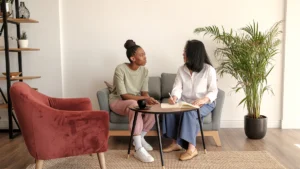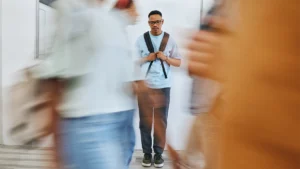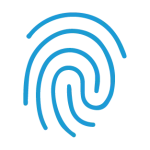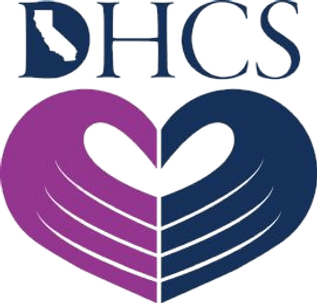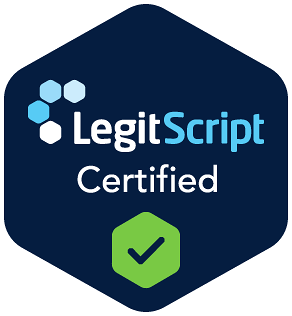Finding the best ADHD medication for adults with anxiety and depression can feel confusing. When you have ADHD along with anxiety and depression, it’s not always easy to know where to start.
That’s why it’s important to understand how different treatments work and how to find the right mix that fits you.
This blog will review the treatment options – medicated and holistic – to treat someone with ADHD, anxiety, and depression. Let’s explore what might work best for you.

Understanding ADHD in Adults
To better explore the best ADHD medication for adults with anxiety and depression, it’s important to understand how ADHD presents in adulthood. While commonly associated with children, ADHD—Attention-Deficit/Hyperactivity Disorder—can continue into or even be first diagnosed during adulthood. Many adults struggle with symptoms for years before recognizing the underlying cause.
There are three main types of ADHD:
Inattentive type – You may get distracted easily, forget things often, or find it hard to follow instructions.
Hyperactive-impulsive type – You might feel restless, talk too much, or act without thinking.
Combined type – You have a mix of both inattentive and hyperactive symptoms.
Adult ADHD can impact work performance, relationships, and self-esteem. Tasks like paying bills on time, completing projects, or staying focused during conversations may feel overwhelming. But with the right tools and support, including proper treatment, adults with ADHD can thrive.
How ADHD Can Coexist With Anxiety and Depression
When exploring the best ADHD medication for adults with anxiety and depression, it’s essential to understand how these conditions often overlap. ADHD rarely exists in isolation—many adults also experience anxiety, depression, or both. This combination can intensify symptoms and make everyday life even more difficult to navigate.
ADHD and Anxiety
ADHD and anxiety frequently occur together. Research shows that about 25% of individuals with ADHD also have an anxiety disorder. Anxiety can heighten ADHD-related challenges like trouble focusing, staying organized, or completing tasks. You might find yourself overthinking, worrying excessively, or feeling constantly on edge—symptoms that amplify ADHD’s impact.¹
ADHD and Depression
Depression is another condition commonly found in adults with ADHD. Studies have shown that between 18.6% and 53.3% of adults with ADHD also experience symptoms of depression. These can include persistent sadness, low energy, and a loss of interest in once-enjoyed activities. When combined with ADHD, these symptoms can further disrupt focus, motivation, and overall well-being.²
The Combined Impact
When ADHD, anxiety, and depression coexist, the symptoms can feed into each other and create a more complex emotional and cognitive experience. Anxiety may heighten restlessness and distractibility, while depression may reduce energy and motivation. Managing daily responsibilities, maintaining relationships, and functioning at work or home can feel overwhelming without proper treatment and support.
The Risks of Dual Diagnosis
If you have both ADHD and something like anxiety or depression, that’s called a dual diagnosis. This means you’re dealing with more than one mental health condition at the same time. And when that happens, ADHD medication alone might not be enough to help you feel better.
When you have a dual diagnosis, you need a plan that looks at all your symptoms. This usually means:
- Medication for ADHD
- Therapy to help with emotions and stress
- Possibly other medications for anxiety or depression
- Healthy routines like sleep, exercise, and a good diet
Working with a medical professional who understands both ADHD and mental health is really important. They can help you find the right blend of support so you’re not just managing one condition and ignoring the rest.
Common Medications for ADHD With Anxiety and Depression
Let’s talk about the medicines doctors often use to help people who have ADHD, anxiety, and depression at the same time. You’ll see that some medicines work for more than one condition, while others are more focused.
A major study published in The Lancet Psychiatry (with support from NIHR Applied Research Collaboration Oxford and Thames Valley) looked at how well certain medicines work for adults with ADHD.
Here’s what they found:3
- Only stimulants and atomoxetine helped reduce ADHD symptoms.
- These results were based on feedback from both doctors and patients.
- The study reviewed 113 clinical trials and included over 14,800 adults from many countries.
- It also looked at how well people tolerated the medicine and how safe each one was.
Let’s break them down:
Stimulant Medications for ADHD
Stimulants help your brain work better by improving focus, calming hyperactivity, and lowering impulsive behavior.
Common stimulant meds include:
- Methylphenidate (like Ritalin or Concerta)
- Lisdexamfetamine (Vyvanse)
- Amphetamine (Adderall)
- Dexamfetamine
How they work:
- They boost certain brain chemicals (like dopamine and norepinephrine) that help you pay attention and stay on task.
Atomoxetine – A Non-Stimulant Option
If stimulants aren’t right for you, your doctor might suggest atomoxetine (brand name Strattera).
How it works:
- It’s not a stimulant.
- It’s an SNRI, which means it increases a brain chemical called noradrenaline.
- This can help you focus and manage your impulses.
Side effects of atomoxetine might include:
- Higher blood pressure and faster heart rate
- Nausea or stomach pain
- Vomiting
- Trouble sleeping
- Dizziness or headaches
- Feeling irritable
Not everyone gets these side effects, but they’re something to watch for and talk about with your doctor.
Bupropion (Wellbutrin) – An Antidepressant That Helps with ADHD
To add to the study, Bupropion (brand name Wellbutrin) is officially registered to treat depression, but doctors also sometimes use it off-label to treat ADHD, although it’s not officially approved for that.4
In a study, adults with ADHD were given either extended-release bupropion (Wellbutrin SR) or a placebo (a fake pill). The study was “double-blind,” meaning neither the people in the study nor the researchers knew who got which pill until the end.
The results: People taking bupropion showed more improvement than those taking the placebo.5
How it helps:
- It’s an antidepressant that can also improve focus and attention.
- It’s often used for people who have both ADHD and depression.
- It works on the brain’s dopamine and norepinephrine systems.
This medicine is a good option when you need help with more than one condition.
Everyone’s brain is different, so the same medicine doesn’t work for everyone. Some meds help with ADHD but not with anxiety or depression, and some may even make one condition worse while helping another.
That’s why it’s so important to work closely with your doctor to find what works best for you.
Holistic Options for Managing Adult ADHD, Anxiety, and Depression
While searching for the best ADHD medication for adults with anxiety and depression, many individuals also explore holistic and alternative treatment options to support their mental and emotional health. These complementary approaches can enhance the effects of medication—or, in some cases, offer a natural alternative for managing symptoms. By supporting overall well-being, they may help ease the burden of coexisting conditions.
Here are some you might consider:
1. Psychotherapy (Talk Therapy)
Talking to a therapist can help manage both anxiety and depression, especially when you have ADHD. Psychotherapy can help you understand your thoughts and feelings and give you tools to cope with them.
Cognitive behavioral therapy (CBT) and group therapy are part of psychotherapy, which helps you:
- Change negative thinking patterns
- Develop better problem-solving skills
- Manage stress and emotions more effectively
Therapy can also give you strategies to deal with the challenges ADHD creates, like poor concentration or impulsiveness. It’s a safe space where you can learn how to balance your emotions and improve your mental health.
2. Mindfulness and Meditation
Mindfulness involves paying attention to the present moment without judgment. It’s shown to help reduce symptoms of anxiety and depression. It can also help people with ADHD focus better and feel calmer.
- Mindfulness meditation can improve concentration, reduce stress, and help you feel more grounded.
- Regular mindfulness practice can also teach you to manage impulsive behavior and negative emotions.
Starting with just a few minutes of meditation each day can make a big difference.
3. Exercise
Exercise is one of the best natural ways to boost your mood and improve mental clarity. It helps release chemicals in your brain, like endorphins, that improve your mood and reduce feelings of anxiety or depression. For people with ADHD, exercise can:
- Help improve focus
- Calm hyperactivity
- Relieve stress and anxiety
Even a daily walk or some time spent stretching can help.
4. Nutrition and Diet
What you eat plays a big role in how you feel and think. There’s no one-size-fits-all diet for ADHD, anxiety, and depression, but some people find that certain foods can help reduce symptoms.
- Foods rich in omega-3 fatty acids (like fish, walnuts, and flaxseeds) may help with brain function and mood.
- Protein in meals can help improve focus and energy.
- Reducing sugar and processed foods might also help with anxiety and mood swings.
A balanced diet, combined with hydration and regular meals, can make a noticeable difference in how you feel every day.
5. Yoga
Yoga is another great way to manage both the physical and emotional symptoms of ADHD, anxiety, and depression. It combines stretching, breathing, and mindfulness. Regular yoga practice can:
- Help you stay calm and focused
- Improve your attention
- Reduce anxiety
- Relieve tension in your body
Many people find yoga to be a relaxing and grounding way to deal with the challenges of ADHD and mental health conditions.
6. Herbal Supplements and Essential Oils
Some people turn to herbal supplements or essential oils to help manage symptoms. For example, lavender oil is known for its calming effects and may help reduce anxiety.6
Ginkgo biloba and ginseng are herbs that some studies suggest may help with focus and memory.7 However, you should always talk to your doctor before using supplements, especially since some can interact with medications.
7. Sleep Hygiene
Getting enough sleep is vital for managing ADHD, anxiety, and depression. Poor sleep can make symptoms worse, so it’s good to establish healthy sleep habits.
- Try to go to bed and wake up at the same time every day.
- Create a relaxing bedtime routine, like reading or listening to calm music.
- No screens before bed, as they can interfere with sleep.
Good sleep can improve focus, reduce mood swings, and make it easier to manage stress.
These holistic and alternative treatments focus on improving your overall well-being. They don’t just treat symptoms; they help you build healthy habits and learn coping skills.
If you’re managing ADHD, anxiety, and depression together, combining these treatments with your doctor’s advice can help you feel better, stay focused, and have more control over your life.
Choosing the Best ADHD Treatment Strategy
There’s no single solution that works for everyone.
The best plan is one that fits you – your body, your symptoms, and your lifestyle. Most people need an array of medication, therapy, and healthy habits.
Start with a Diagnosis
The first step is getting a full diagnosis. A doctor or mental health provider will ask about your symptoms and how they affect your daily life. They’ll look at all the pieces – your focus, energy, mood, anxiety, and stress levels.
Your doctor may recommend medication to help with ADHD, anxiety, depression, or all three. In addition to meds, many people find relief from non-medical treatments, too. You don’t have to do everything at once. Start small and build what works for you.
Personalizing Your Plan
You and your provider can work together to create a plan that fits your life. Some people need more medication support. Others prefer natural options. Most people do best with a combination of both.
The goal is to help you focus better, feel more balanced, and reduce the stress that comes from juggling ADHD with anxiety and depression.
Let OceanRock Health Help You
At OceanRock Health, we understand how complex this can be. Our team can help you explore both medical and holistic options so you can find the best ADHD medication for adults with anxiety and depression and a full plan that truly supports your mental health.

Sources:
- Ohnishi, T., Kobayashi, H., Yajima, T., Koyama, T., & Noguchi, K. (2019). Psychiatric comorbidities in adult ADHD were analyzed, showing prevalent patterns in clinical settings. Innovations in Clinical Neuroscience, 16(9–10), 11. https://pmc.ncbi.nlm.nih.gov/articles/PMC7009330/
- Katzman, M. A., Bilkey, T. S., Chokka, P. R., Fallu, A., & Klassen, L. J. (2017). A dimensional view of adult ADHD and comorbid conditions provided insights for better diagnosis and treatment. BMC Psychiatry, 17(1). https://doi.org/10.1186/s12888-017-1463-3
- Ostinelli, E. G., et al. (2024). This systematic review evaluated pharmacological, psychological, and neurostimulatory treatments for adult ADHD. The Lancet Psychiatry, 12(1), 32–43. https://doi.org/10.1016/s2215-0366(24)00360-2
- Verbeeck, W., Bekkering, G. E., Van den Noortgate, W., & Kramers, C. (2017). Bupropion’s effectiveness in treating adult ADHD was examined through a comprehensive Cochrane review. Cochrane Database of Systematic Reviews, 10. https://doi.org/10.1002/14651858.cd009504.pub2
- Reimherr, F. W., et al. (2005). A short-term placebo-controlled study tested bupropion SR’s impact on ADHD symptoms in adults. Neuropsychiatric Disease and Treatment, 1(3), 245. https://pmc.ncbi.nlm.nih.gov/articles/PMC2416755/
- Yoo, O., & Park, S.-A. (2023). Lavender essential oil inhalation was reviewed and found effective for reducing anxiety. Healthcare, 11(22), 2978. https://doi.org/10.3390/healthcare11222978
- Persson, J., et al. (2004). Ginseng and Ginkgo biloba were shown to enhance memory in healthy individuals. Psychopharmacology, 172(4), 430–434. https://doi.org/10.1007/s00213-003-1675-8

